#horror book review
Explore tagged Tumblr posts
Text
Creepy Classics: Carmilla
This Creepy Classic is one to sink your teeth into. Here is the story of "Carmilla" from @ThiatheBard #creepyclassic #carmilla
Photo curtesy of Thia the Bard. Copyright 2011 Wilder Publications, LLC Vampires have been around, in one form or another, for centuries. In fact almost every group of people have a story that falls under the category of a vampiric creature. Almost everyone having a version of a creature that feeds off of the lifeforce of the living is incredibly interesting to me. They may be slightly different…

View On WordPress
#book#book review#carmila#carmilla youtube series#horror book#horror book review#YouTube#youtube series
6 notes
·
View notes
Text
The Low, Low Woods by Carmen Maria Machado [Book Review]
#50 states of horror#best horror#body horror#book review#book-reviews#Books#dark horror#environmental horror#fiction#gore#gore horror#grotesque horror#horror#horror book#horror book review#horror graphic novel#horror lit#horror review#manga#memoir#mystery#psychological horror#review#small town horror#the low low woods
0 notes
Text
Horror Book Review: Grisly Deeds 2 (Tommy Ellis/Margot Ellis)
Just like its predecessor, Grisly Deeds 2 is an anthology but with a few less tales. While this does mean the gruesome fun ends far sooner than most would want, it doesn’t mean this second book is lacking in horror detail. Nor does it lack in dark humour or creepiness.
Tommy and Margot Ellis’ Grisly Deeds is a delightfully wicked book that pays homage to the classic horror anthologies of the 1960s and 70s. It is filled with exciting, frightening, and graphic horror tales, and this sequel aims to continue that. Just like its predecessor, Grisly Deeds 2 is an anthology but with a few less tales. While this does mean the gruesome fun ends far sooner than most…
#Grisly Deeds#Grisly Deeds 2#horror#Horror Book#Horror Book Review#Horror Review#Margot Ellis#Tommy Ellis
0 notes
Text
The Silent Companions by Laura Purcell

🌕🌕🌕🌕🌗 (4.5/5)
“When newly widowed Elsie is sent to see out her pregnancy at her late husband's crumbling country estate, The Bridge, what greets her is far from the life of wealth and privilege she was expecting . . .
When Elsie married handsome young heir Rupert Bainbridge, she believed she was destined for a life of luxury. But with her husband dead just weeks after their marriage, her new servants resentful, and the local villagers actively hostile, Elsie has only her husband's awkward cousin for company. Or so she thinks. Inside her new home lies a locked door, beyond which is a painted wooden figure —a silent companion —-that bears a striking resemblance to Elsie herself. The residents of The Bridge are terrified of the figure, but Elsie tries to shrug this off as simple superstition--that is, until she notices the figure's eyes following her.
A Victorian ghost story that evokes a most unsettling kind of fear, this is a tale that creeps its way through the consciousness in ways you least expect--much like the silent companions themselves.”
When I first checked out The Silent Companions from the library, it only had 3-stars on Goodreads. Looking at it now, I’m pleased to see that it’s gone up to nearly 4-stars- of course, because I’m biased but that’s kind of the point of this whole review blog. I will never claim non-bias, I think book reviews mean slightly more when there’s a bias in there. But that’s my opinion, this whole thing is my opinion.
I’m a self-proclaimed lover of the psychological aspect of horror- what can I say? There’s something about watching someone being faced with horrors and seeing exactly how it is they cope, or fail to. Purcell has a particularly fascinating exploration into this with The Silent Companions. Gaslighting in horror is one of my particular favourite tropes within that psychological umbrella- to be experiencing fear and to be doubted. And then to combine it further with the isolation of grief!
To quote the book itself, “She had an urge to confess everything. . . But to speak of such things made them a farce. You could not explain fear; you could only feel it, roaring through the silence and striking your heart still.”
Purcell’s voice in her writing captures perfectly the rolling tumble from a woman with her head held high to desperate defeat. And that’s something I can’t understate, Purcell really does excel in this book with her tones- from the blue tones of grief to the grey of misery. There is something so enrapturing about how she writes horror, that you act as voyeur in Elsie’s story. Her recounting of her doom. The atmosphere is created with a natural ease, there’s no theatrical backdrop here- any context needed for period terminology is given through natural story flow instead of a whole aside being needed, or an immersion breaking explanation. It’s difficult to successfully explain whole cultural items through context clues, but I do think that Purcell should be given the credit of having done it very well.
Additionally, something I think I have to mention; the sort of ‘creatures’ in this book, the things actually committing the horror bit, are fascinating. They’re not something that you’d normally think to be afraid of, creeped out by maybe, but overall harmless. Nobody is really eyeing their life-sized cardboard cutout of a random celebrity like it’s going to murder them. But Purcell makes them absolutely creepy with just the idea of it. They don’t even do much- it’s implied- and somehow it’s all the worse for it. There’s one passage in the book that I can’t quote here in full without spoilers, but I can quote even just this tiny fragment for a fraction of the effect. “Splinters. . . Something trying to get in.”
Haunted dolls step aside, the cardboard cutout of Danny Devito in the back of your bedroom closet is making his move.
Now, something I’m not usually a personal fan of in really any book is multiple timelines being told within, separated by chapters. There’s something about it that breaks immersion for me, something about being distracted by the cliffhanger of one storyline during the next installment of the other story- only for that one to pause just as you were getting back into it. Rinse and repeat. The Silent Companions unfortunately isn’t an exception to this. I feel the pacing between the three timelines taking place can be an awkward shift instead of the natural flow the story itself has. Maybe that natural flow is what makes it so awkward- it doesn’t feel like what’s happening should pause, so the disruption is harder to recover from. The stories being told are still great, and well written- I’m just not a huge fan of the breaks in flow.
The end of the book is also a bit of a disappointment in that regard. I won’t spoil it here, I don’t want this to be a spoiler blog for some reason. But the end of the story here feels more stuttered and haphazard, some ideas feel unfinished or unfleshed out. Like it was something Purcell might’ve explored more but didn’t, for either a lack of time or space, or that she couldn’t make a longer delve into it work. I would’ve really liked for the ending to feel more like a solid landing for all the greatness that preceded it- but instead it sort of feels like an ‘Oh? Okay I guess.’
Overall, Purcell did an amazing job with The Silent Companions. It’s a book I would heavily recommend for anyone looking for a nice shorter length-without-being-too-short story. It’s involving, the pacing of the ‘main’ storyline is incredibly well done, the horror is a beautifully crafted sense of dread and confusion. Its ambiance is lovingly crafted with a healthy amount of period knowledge without becoming an essay. I don’t know, I just really enjoyed what Purcell did here and the next book on my to-read list is The House of Whispers by her, so I have decently high hopes.
I can add a warning that there are some elements of this book that might affect certain audiences- if you’re squeamish about things happening to babies or pregnancy, or if you’re sensitive to topics of mental illness in a ‘Victorian-Asylum’ kind of way, then at the very least be advised and don’t say I didn’t warn you. Or do, really, I’m just a guy writing a review on the internet.
Cheers, friends!
#book blog#book review#books#sharpteethreview#bibliophile#horror#horror books#literature#The Silent Companions#laura purcell#horror book review#hello
1 note
·
View note
Text
The Southern Book Club's Guide To Slaying Vampires - Horror Novel Review
Author: Grady Hendrix Publisher: Quirk Books Country: USA Year: 2020 The last novel of Hendrix before his move to Titan Books for his next release (which would be The Final Girl Support Group) is, as he states in the introduction, a kind of companion piece for My Best Friend’s Exorcism, taking a look at the adventure of parenthood as opposed to the troubles of the teenage years. Here our…
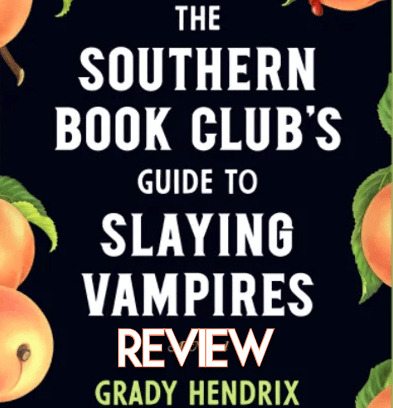
View On WordPress
#book critic#book criticism#book review#crime#critic#final girl support group#grady hendrix#grady hendrix review#horror#horror book review#horror books#horror novel#horror novel review#literature review#my best friend&039;s exorcism#new horror review#the southern book club&039;s guide to slaying vampires review#vampire book review#vampire slayer review#vampires
1 note
·
View note
Text
'Reliquary' Book Review By Ron Fortier
New Post has been published on https://esonetwork.com/reliquary-book-review-by-ron-fortier/
'Reliquary' Book Review By Ron Fortier
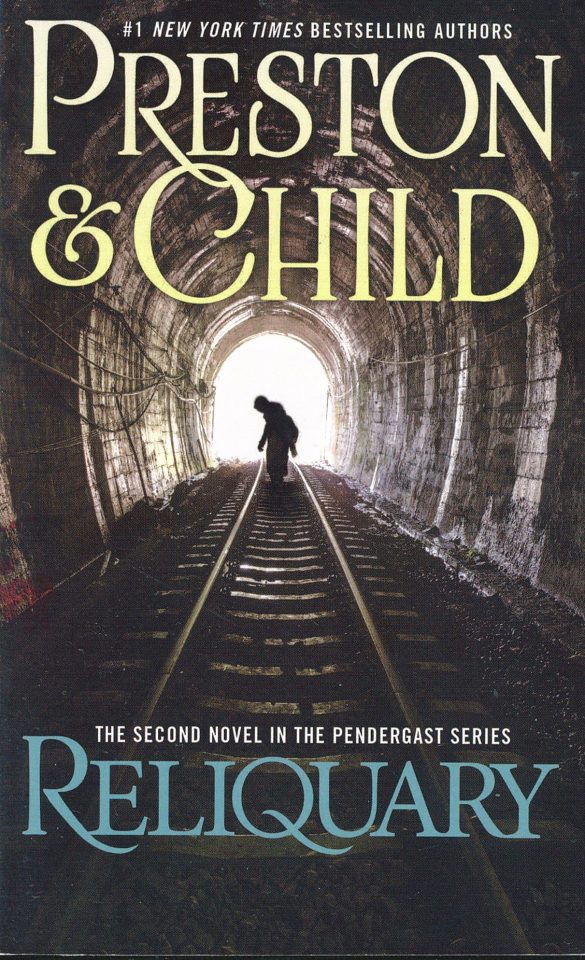
RELIQUARY By Douglas Preston & Lincoln Child Forge Fiction 264 Pgs
Way back in 2002 a good friend sent us a copy of the book, “The Cabinet of Curiosities” by Douglas Preston and Lincoln Child. It was in this book that we first encountered FBI Special Agent Aloysius Pendergast. We didn’t know at the time that it was the character’s third appearance in a book by these two writers. Later we would learn he had first appeared in “Relic,” (1995) a horror thriller that was later adapted into a feature film. Now we hadn’t read “Relic” but we had seen and enjoyed the movie. Sadly, while bringing the story to the screen, the screenwriters opted to trim the large cast of characters and Pendergast was one of the casualties of those cuts.
Buoyed by the success of that first collaboration, Preston and Child wrote a sequel, “Reliquary” (1997), and once again brought back Pendergast as part of the original cast of characters from the previous thriller. Again, at the time, we were totally oblivious to any of this. Or the fact that Pendergast role slowly growing even though he was still part of an ensemble of players. With the arrival of “The Cabinet of Curiosities” he took center stage and quickly gathered a huge fandom. Soon the series became the Pendergast books and each continued to expand his popularity. It remains our personal favorite.
Recently we found a new paperback edition of “Reliquary” and immediately picked it up. We were amused at the sub-title indicating it was “The Second Novel in the Pendergast Series.” How things had changed. Being familiar with the movie version of “Relic” we had no trouble digging into this story and realized quickly that it is most assuredly a follow-up. In fact, one might rightly call it Part Two of the same tale. In “Relic” a scientist returns from a trip to the Amazon infected by an exotic plant. Upon his return to New York City and the Natural History Museum, it transforms him physically into a monstrous beast that then terrorizes and murders lots of people before being vanquished.
In “Reliquary” several of his museum colleagues have discovered the truth behind the monster and begin experimenting with what remains of the alien plant. This secret experiment leads to the creation of as yet another mental and physical altering drug and they begin testing it on the homeless “moles” that live beneath the streets of the city. Soon these poor souls are turned into horrible creatures and begin killing people at random. When a rich young debutant becomes one of their victims and her headless corpse is discovered in the river, the police begin to investigate, and eventually, Lt. Vincent D’Agosta and Dr. Nora Kelly, a museum curator, are once again teaming up to solve the grisly murders. It is no surprise when, a quarter into the book, Agent Pendergast appears we readers are once again enjoying another fast-paced, fantastic thriller like no other.
Being Pendergast fans, we’re happy to have had this chance to read one of his earliest appearances and as ever cannot wait for his newest book.
#Aloysius Pendergast#book review#Cabinet of Curiosities#Douglas Preston#ESO#ESO Book Review#ESO Network#Forge Fiction#Horror Book Review#Lincoln Child#reliquary#Ron Fortier
0 notes
Text
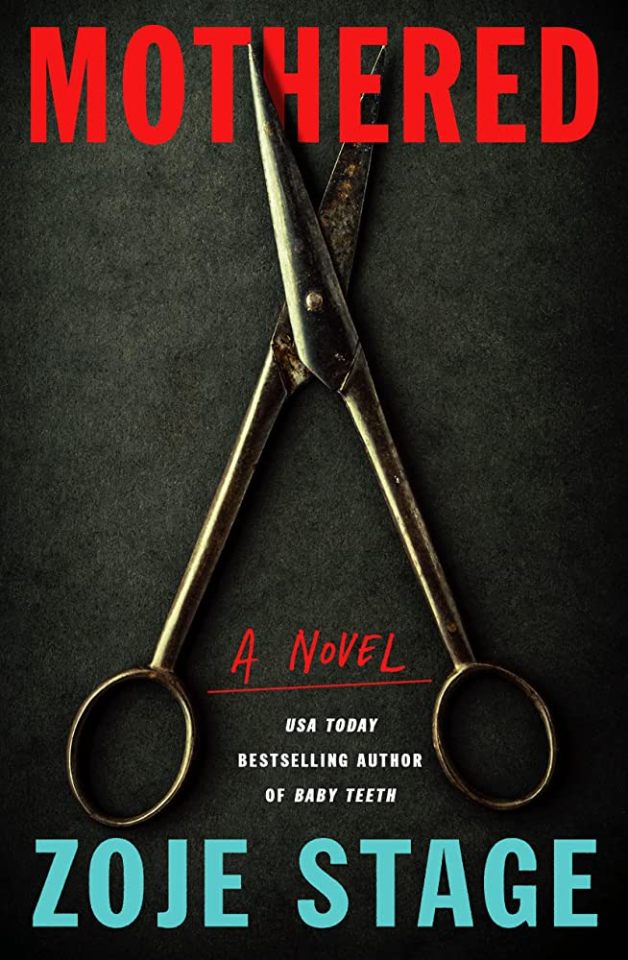
2 ⭐ - sorry if the review sounds mean, I got infected with the nightmare vegan evil disease
SUMMARY
Grace isn’t exactly thrilled when her newly widowed mother, Jackie, asks to move in with her. They’ve never had a great relationship, and Grace likes her space—especially now that she’s stuck at home during a pandemic. Then again, she needs help with the mortgage after losing her job. And maybe it’ll be a chance for them to bond—or at least give each other a hand. But living with Mother isn’t for everyone. Good intentions turn bad soon after Jackie moves in. Old wounds fester; new ones open. Grace starts having nightmares about her disabled twin sister, who died when they were kids. And Jackie discovers that Grace secretly catfishes people online—a hobby Jackie thinks is unforgivable. When Jackie makes an earth-shattering accusation against her, Grace sees it as an act of revenge, and it sends her spiraling into a sleep-deprived madness. As the walls close in, the ghosts of Grace’s past collide with a new but familiar threat: Mom. (Source)
Review below the cut. Warning, this review will contain spoilers.
REVIEW
I'm going to be honest: there's not a lot in Mothered that I particularly enjoyed. The pacing, story, prose, and characters were not at all what I want from a horror book. There were exactly two characters I liked seeing on the page (which is stretching it, since one of them is a cat) and one horror moment that I found to be memorably creepy. While it was a fast read, if I hadn't gotten this book through Netgalley I almost certainly would have DNF'd it pretty quickly (and that is if I had picked it up at all, since it would have failed the page 99 test).
STRUCTURE AND PROSE
As it opens and ends the story, I may as well discuss the prologue and epilogue. These two follow a therapist named Silas, who claims he is excited to work with an unnamed patient due to the brutality of the murder she committed. It's obfuscated which of the two women, Jackie or Grace, committed homicide. (Keep a pin in this as we'll be returning to it.) As the prologue concludes, we are told that “[Silas’s] job, as it often was, would be to filter the drop of truth from a waterfall of magical thinking” (13). This setup, with Silas being directly indicated to be a character who would engage with the narrative about to be told, indicates that the main bulk of the narrative would be in a narrative frame. Grace would speak to Silas to confess her life story and convince him of her point of view (a la Frankenstein, the reason why I love a good frame narrative). This is not the case. Rather than being nested, the narrative is delivered by a close third person narrator, with Grace’s story bookended by Silas’s. The prologue and epilogue might as well have not been there; they add little to nothing to the narrative. All that was achieved was disappointment. The completely normal third person narration was. A Choice. Look, I’m a fan of close third person. It works fine, but it was a disappointing choice, espcecially after that prologue setup. Grace as a character does have interesting elements to her that I feel would have been far more interesting to me as a reader had we navigated the narrative directly through her eyes. Speaking of characters, wasted potential is the name of the game in Mothered. Characters have features and traits, but aren’t well-rounded. Part of that issue is with the dialogue; it is middling at best, and stilted, awkward, or shallow at worst. Additionally, there's not as much of it as one would think for a story about a toxic mother-daughter relationship stuck in close quarters.
The standout issue with the characters for me is that they are their role in the story before they are a character. Silas is not a character who is a therapist, he is the therapist character (and, upon a re-read of the prologue, is I think supposed to be some sort of reader stand-in? Which I also am not a fan of). Miguel isn’t a character who is the main character’s best friend; he is the best friend character (worse, he falls into the gay best friend trope). Jackie isn’t a character who is Grace’s mother; she is the mother character. Grace, by virtue of being the protagonist, somewhat escapes this issue, but still is not well-rounded or developed by any means. She’s supposed to be an unreliable narrator, something I normally love, but in her found to be unengaging.
Grace as a protagonist could have been interesting; she has a lot of childhood trauma, but does genuinely try to help those around her. She’s kind towards her friend Miguel and drops everything to help him when he gets sick. While has the bizarre hobby of catfishing women (which she calls damsels) online, she describes it as intentionally trying to help build these women’s self esteem and help them improve their lives. The interesting elements of her, however, aren't really fleshed out enough. The damsels plotline especially had a lot of very interesting potential that’s completely unfulfilled. It really only exists so that Grace has something to feel guilty about and hide from her mother. The pacing. God, the pacing. The pacing was strange, due to the fact that a bulk of the narrative is dream sequences. The narrative jumps forward in time rather suddenly in order to dump the reader into a dream without indication. Not only does this make the pacing feel jerky and inconcistant, it also means that the dream segments are also far less effective. While suddenly jumping from reality to a dream can be a valuable strategy because it puts both the reader and the character into a state of uncertain reality, most of the time it did not work in Mothered. The only time I did find it effective and memorable was the first; after that, since I knew what the author was trying to pull, the strategy was ineffective because I knew it was a dream, even if Grace did not.
The pacing during the non-dream segments was jerky as well. It often felt like the narrative was just trying to hurry to the next dream sequence. For example, chapter fourteen ends with Grace texting her best friend Miguel; chapter fifteen jumps to her having been hired by her old boss and visiting the new salon space. From that first paragraph, it's obvious that it's a dream. As a result, the non-horror section of the dream dragged on for far too long (since the conversation the characters was having was not only not real but also completely banal) while the horror section of it was not horrifying (as the physical danger, social rejection, and reality break Grace was experiencing was obviously just a dream). During most dream sections, especially during the second half of the book, I was bored. For a mystery/thriller novel, Mothered is not very mysterious or thrilling. While there is certainly a hidden past tragedy that is eventually revealed, the actual reveal is... kind of boring. The narrative takes, in my opinion, the most uninteresting route. In the prologue, Silas muses that the case is “a good puzzle… one that look[s] on the surface like the gory movies he still so loved” (13). But this isn’t a puzzle. All the answers are spoonfed to the reader, and if the narrative makes an attempt to hide it, it does a terrible job.
One example of a very unmysterious mystery is the intentional obfuscation of who killed who in the prologue. My thought process during the first half of the novel was this:
A) Because the narrative follows Grace in close third person and
B) never follows Jackie,
that would normally indicate to me that
C) Grace, as the POV character, will be the surviving party.
However, because the identity of the patient in the first chapter is intentionally and carefully obfuscated from the reader, then
A + B might not equal C, but instead equal either
D) an upset of expectations (for example, Jackie killing Grace)
or
E) a third act twist revealing a previously unknown actor or plot element that reveals that the killer, the victim, Grace, and Jackie are in a more complicated configuration than first presented.
As I continued reading, it became clear to me that the narrative was not going to pull anything that interested. Despite this, I held out hope that the final chapters would have some kind of twist. That hope was futile. That setup of not knowing who dies is never cashed out. It just follows the most basic, obvious route: Grace is the protagonist, and because she is a protagonist, she can’t die so she has to be the murderer. Why bother to intentionally hide who kills who and then just not do something interesting? Especially when that problem is directly presented as being a puzzle!
Speaking of basic, the prose in general was boring. It’s all very direct and blunt, which can sometimes be a fantastic way to write a horror/thriller, but it just didn’t work for me here. The prose relies so heavily on telling over showing I felt as though the narrative was spoonfeeding me. Look, I don’t always need purple-literary-Romantic-big-words-long-sentences prose to enjoy a novel, but I do need something to chew on. If I’m not finding that in the structure, characters, horror elements, or central mystery, then by god at least give me some chewy prose.
THE DREAMS
I love dreams in horror. Exploring unreality, watching the line between waking and dreaming blur, having one encroach into the other. I love it all. Therefore, believe me when I say that the premise of incorporating horrible nightmares into a horror story isn't the issue. The issue with Mothered’s dreams was the execution. First off: the horror elements were almost completely restricted to dreams. Although there were one or two moments of horror that I found genuinely intriguing, memorable, or creepy (for example, the "Mona needs a calfskin bag" dream), most of the rest of them were tropey, predictable, or overdone. While I bought that these dreams were upsetting for the character, they were not particularly upsetting to me. At some point it just got old. The use of dream horror is, to me, something that has to be done subtly, carefully, and sparingly, especially when we have a protagonist presented as unreliable. It's none of those things in Mothered. The few horrifying elements outside of dreams are hallucinations. Grace dismisses them as such pretty quickly, and the hallucinations themselves fail to be credible from the get-go because they aren’t believably slotted into Grace’s reality. Horror-wise they aren't even good ones; they're even more tropey than the dreams. Even the horror of Grace and Jackie’s toxic relationship and the childhood trauma was restricted to these dreams as well; while there were some good moments of toxicity, gaslighting, or emotional manipulation in the waking world (such as Jackie letting Coco outside), almost all the detail and nuance we get about their history is dreamed.
Even the dreamed details about their past that do carry over into the real world aren’t fully fleshed. For example, during a dream, we are introduced to the paper dolls that Hope and her sister Grace used to play with. Later, while rummaging through her mother’s things, Grace finds her sister’s doll but not her own. While the doll imagery comes back in later dreams, that doll as a symbol of her mother’s favoritism and her relationship with Grace never beomes a point of conflict between the two. There isn’t ever a conflict about it, even when those dolls get brought up in conversation. I wanted a blow-out fight about those dolls; I wanted those dolls as an element of gaslighting; I wanted those dolls to be something that lead to a direct conflict that further develops Grace and Jackie’s current day relationship. But they don’t, and neither does much else.
The book’s summary claims that moving in together makes “old wounds fester” and “new ones open.” Sure, old wounds get re-opened, but calling what happens “festering” is a bit of a stretch. Grace is reasonably stressed about her mother being a bad roommate at times and Jackie occasionally apologizes for being a bad mother to her (though those conversations are rather surface level and nowhere near as toxic as they could have been). The only “new wounds” that open are are the ones that kill Jackie, with nary a new psychological wound in sight. As a result, the level of intensity between the two never quite reaches the fever pitch needed to make that final snap believable, narratively satisfying, and sharp.
One final complaint about the dreams I couldn’t shoehorn in elsewhere, so I’m shoehorning it in here. Sometimes (typically during dreams where Grace is reliving a childhood memory), Grace calls Jackie “Mommy.” I get why—as a child, she certainly did not call her mother by her first name—but it really did not work for me. Grace was a child forced to grow up too soon; I could buy her calling Jackie mom, maybe, but mommy? I certainly can’t see an overworked, exhausted Jackie referring to herself as “mommy” to her children. It was just weird and off-putting and out of place because it was so infantile, and, to be honest, came off as funny and unserious.
All that said, the dream scenes were far better written than the scenes that took place in reality. If they'd had better connective tissue and were more subtly handled, they could have been very effective. As it is, they're disappointing.
REALITY
From the premise, title, and setup of Mothered, I expected a book about a toxic mother-daughter relationship. I expected the narrative to explore that relationship in-depth and push the tension of it to its very limits. I wanted to watch them try to navigate an enclosed space. I wanted overtures of forgiveness turning nasty. I wanted conversations about Grace's childhood! I wanted them to have small disagreements that balloon out of control! I wanted a slow build of tension and complex hatred! I wanted gaslighting, damn it! There were a few times—for example, the dinner party with Miguel—where there was subtle friction between actions and intention between Grace and her mother. Grace questions who her mother is now and how she relates to the woman who raised her. Jackie is the traditional boomer parent and brings up grandchildren. Miguel and Grace share the occasional bemused glance. It was a good early scene, which I thought would lead into later, complex, more dramatic scenes. For the most part, though, Grace and Jackie’s interactions were not all that complex, did not have subtextual implications, and were so direct and unnuanced it just was never all that interesting. While Grace certainly had reasons to doubt the reality around her, as a reader, I did not have any reason to believe what she was being told by her mother was untrue.
As mentioned earlier, most elements of the novel’s central mystery—what happened to Grace’s twin sister—were introduced in dreams, then (maybe) introdced into the waking world. The only piece evidence that emerged from a direct confrontation between Jackie and Grace was the box. While what it revealed wasn’t particularly funny, I couldn’t take the contents seriously because it just gave me Assassin’s Creed 2 flashbacks.
Anyway. On all accounts, even down to the title, Mothered is supposed to be about a toxic mother-daughter relationship. It's also about:
The pandemic (which didn't really work for me. If it had been a book set during the pandemic, it might have worked. The difference between the two is a bit difficult to explain, but it's something that made a huge difference)
Her career as a hairdresser
Growing up being the primary caretaker to a disabled sibling
A weird disease that causes nightmares and turns you vegan
An ace woman’s relationship with her sexuality and desire to be a mother herself (complete with guilt over telling a teenager to have an abortion so her life wasn’t ruined!)
The close friendship between two queer people
That same woman’s hobby catfishing other women, pretending to be a man so that she can help them improve their self-confidence
The book just tries to juggle too much in the 300-ish pages it has. While a novel of that length certainly can incorporate that many or even more plot points, Mothered just doesn’t pull off weaving them together as cleanly as it could have. As a result, the narrative becomes muddled and shallow, with the titular mother-daughter crowded out by the rest. Before I close out, I just want to complain about the whole mystery illness plot point. It's another unnecessary, underdeveloped plot element that muddies the narrative waters even further. The final hook it provides in the epilogue (the therapist is like "oh no I'm having nightmares... just like Grace did!!!") was so cheesy I actually laughed out loud. It became doubly funny when I realized one of the symptoms of the disease is becoming a vegan. I'm sorry, but I genuinely cannot take the narrative seriously enough to be thrilled or frightened.
FINAL THOUGHTS
In writing this review, I had the opportunity to sit with the novel’s themes and really consider: what are they saying? What do they mean? It’s interesting to me that initially I read this book as (at least attempting to be) feminist. Yet after ruminating on how the book handles themes such as abortion and birth, motherhood, disability, and childhood trauma, it surprised me how shallow and at times contradictory it all ended up being.
While I can see why other folks enjoyed this novel, it's absolutely not to my taste when it comes to horror, thriller, or adult fiction. Further, in my opinion, I think it's ineffective in its exploration of mother-daughter toxcicity and childhood trauma. I requested Mothered because I always heard such great things about Baby Teeth; unfortunately, I think this has indicated she's not an author for me. Thank you again to Thomas & Mercer for providing a digital advance review copy through Netgalley. If you're interested in reading Mothered, it releases March 1, 2023. Find more information about the book here.
#liber monstrorum reviews#mothered#mothered by zoje stage#horror book review#horror book#thriller book#thriller book review#book review#bookblr#netgalley#netgalley review
0 notes
Text
As the clock strikes midnight at the dawn of Halloween, I come bearing spooky books! Check out these cool recs for horror and paranormal novels by transfeminine authors that'll make your day a little darker 🖤
#halloween#spooky season#trans horror#horror#horror recs#book review#book rec#queer book recs#trans book recs#trans fiction#trans literature#transfem#booklr#literature#books
456 notes
·
View notes
Text

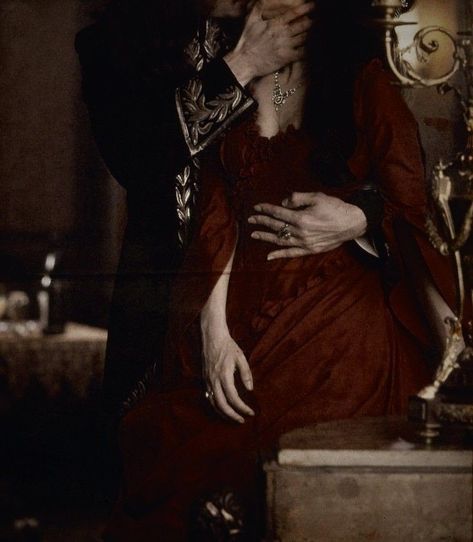


“The blood jet is poetry, There is no stopping it.”
-Sylvia Plath
#writers on tumblr#writers and poets#vampire#booklr#fantasy books#book recommendations#writeblr#dark acadamia aesthetic#aesthetic#dark romance#dark feminine energy#dark aesthetic#dark art#dark academia#twisted wonderland#horror#70s horror#horror films#sylvia plath#book review#vampire aesthetic#dark feminine aesthetic#vibes#lana del ray aesthetic#ldr aesthetic
169 notes
·
View notes
Text
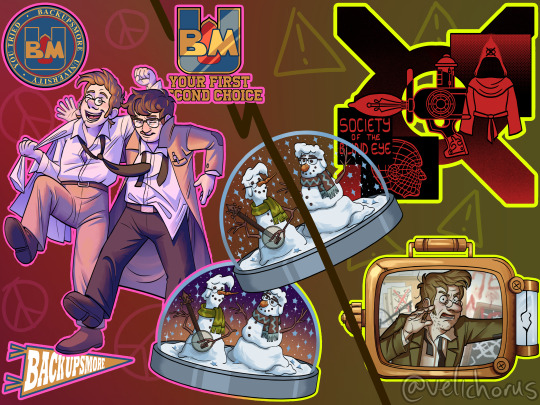
I hope me just constantly posting stickers isn't getting annoying but I have SO many ideas and I am an avid sticker enjoyer I'm having so much fun coming up with these lol
Ford and Fiddleford batch! I've got two more batches of 5(?) sticker designs each and then I'm gonna focus on the Bill animatic for realzies :)

#fiddleford mcgucket#stanford pines#fiddauthor#gravity falls#society of the blind eye#backupsmore#the book of bill#(for the snowman snowglobe. I think that one's my fave :))#My little shop of horrors sticker got taken down for review tho :(#gravity falls stickers#gf fanart#fanart#art#I can never remember which is my main tag
223 notes
·
View notes
Text
Horror books that genuinely scared me (from a lifelong horror reader that’s so so rare):
1) The Outsider by Stephen King - made me paranoid as fuck at night, had to hide the dust jacket
2) Straight by @drchucktingle - I had fucked up nightmares about this book, I couldn’t look my cis straight roommates in the eyes for days
3) Everything the Darkness Eats by Eric LaRocca - I’m a queer with religious trauma, I had a full existential crisis after reading this
Did these books affect me psychologically? Yeah probably. Are they also in my top fav of all time? Yup😊. Would I recommend them to everyone? Fuck yeah I would! Go read these and prove love is real (that is a threat💕)!
#notice how all of the books feature prominent neurodivergent and/or queer characters#I’m sure it’s a coincidence#it says nothing about me#buckaroo lifestyle#love is real#proud buckaroo#stephen king#chuck tingle#eric larocca#bookblr#book blog#reading#bookish#booktok#books and reading#books#goodreads#book club#book review#horror#horror books#queer horror#tingleverse#book reccs#queer book recs#book recommendations
375 notes
·
View notes
Text
Uncanny: The Origins of Fear by Junji Ito [Book Review]
#best horror#body horror#book review#book-reviews#Books#dark horror#fiction#gore#gore horror#grotesque horror#gyo#horror#horror book#horror book review#horror lit#horror manga#horror review#ito#junji#junji ito memoir#memoir#mystery#psychological horror#review#slug girl#small town horror#spiral#tomie#uncanny#uncanny junji ito
1 note
·
View note
Text
Horror Book Review: Happy Bunny and Other Mischiefs (Rebecca Gransden)
From writer Rebecca Gransden comes Happy Bunny and Other Mischiefs. A collection of tales that range in style and tone. Some are wildly fantastical, while others are rooted in more tangible horrors. What each has in common though is the feelings of dread, revulsion, despair, and delight they evoke in the reader’s mind.
There were many moments throughout my read of Happy Bunny and Other Mischiefs where I had to stop and re-read the last sentence or paragraph. Not because it was poorly written, made no sense, or I was struggling to follow the story. No, I had to stop and re-read on occasion because author Rebecca Gransden’s writing style is so vibrant and coated in creativity that it needed a bit of extra work to…
#Anthology#Book#Book Review#Collection#Happy Bunny and Other Mischiefs#horror#Horror Book Review#Rebecca Gransden#Short Stories#Shorts
0 notes
Text
If you liked Camp Damascus, try Hell Followed With Us
and vice versa!
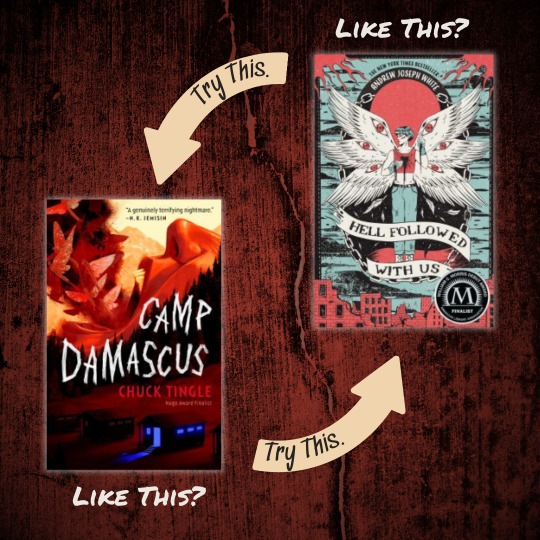
There's a lot to love in both Camp Damascus by @drchucktingle and Hell Followed With Us by Andrew Joseph White. As horror novels about queer youth with, shall we say, complicated relationships with religion, they have a lot in common - if you liked one you very well may like the other. Let's take a closer look.
Characters:
Both books feature queer, autistic youth fighting back. The characters are trying to survive in a world created for them by abusive adults and religious institutions that hold power over them.
In Camp Damascus we follow Rose (autistic, lesbian). In Hell Followed With Us we follow Benji (neurodivergent, trans) and Nick (autistic, gay).
Genre:
Both books are horror, but with two distinct flavors. Camp Damascus has more of a creepy factor, while Hell Followed With Us leans more toward gore. In Camp there is some mystery to the evil, but in Hell the evil has a name, a face, an address - and a to-do list.
Both books deal with Christian cults and the horrors of indoctrination. They deal with the characters' complicated relationships to Christianity as an institution and God as a concept. They also both quote Christian scripture heavily.
Vibes:
While both books are horror, they do feel very different, largely because the primary emotion that drives each story is different. In Camp Damascus, it's love. In Hell Followed With Us, it's rage. You'll certainly find both emotions in certain quantities in either novel, but what they primarily put forward distinctly changes the vibe of both books.
-
So there you have it! Two fantastic reads in close thematic conversation with each other - but still quite distinct. If either sounds good to you, do yourself a favor and check out both today!
See more of Robin's recs
#camp damascus#hell followed with us#andrew joseph white#chuck tingle#lgbtq books#lgbtq reads#lgbtq authors#lgbtq characters#horror#horror novel#queer horror#book review#book recommendations#books and reading#booklr#book recs#LCPL recs#robin's recs
506 notes
·
View notes
Text

Prolapse of the Iris, Georg Bartisch, c. 1583, from Ophthalmodouleia: Das ist, Augendienst
"Despite his scientific calling, Bartisch was a superstitious man, believing that astrology, magic, and witchcraft played a significant part in the causes of disease..."
via Public Domain Review
#art#illustration#anatomy#georg bartisch#eyes#16th century#german artists#science#medicine#books#public domain review#medical horror#superstition#witchcraft#magic
103 notes
·
View notes
Text
The Final Girl Support Group - Horror Novel Review
Author: Grady Hendrix Publisher: Titan Books Country: USA Year: 2021 Anyone who knows me knows I love my Grady Hendrix. He’s the maestro of the self-aware horror homage novel, with titles such as My Best Friend’s Exorcism and Horrorstor making a massive splash when they landed. Giving the supernatural a break for a bit, he turns his hand to the slasher subgenre, which makes one wonder if you…

View On WordPress
#a nightmare on elm street#book critic#book review#friday the 13th#ghostface#grady hendrix review#halloween#horror book review#horror books#horror critic#horror novel review#horror review#michael myers#scream#slasher#slasher film#slasher flick#slasher movies#slasher review#the final girl support group review#thriller review
0 notes